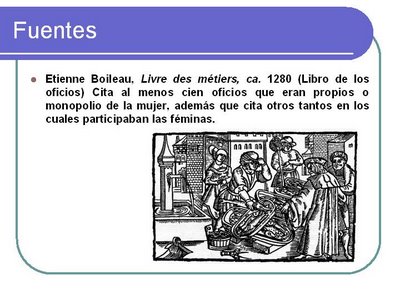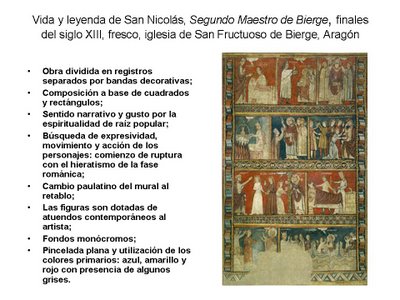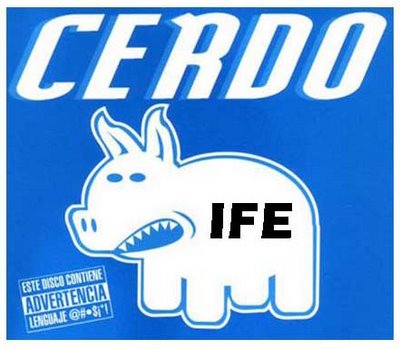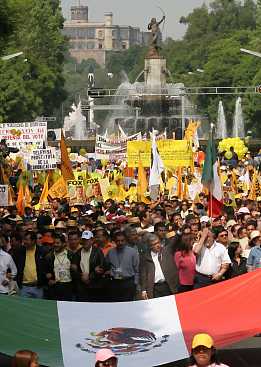
dilluns, de juliol 31, 2006
Diumenge i manifestació

divendres, de juliol 28, 2006
What Gender Is Your Brain?
| Your Brain is 53% Female, 47% Male |
 Your brain is a healthy mix of male and femaleYou are both sensitive and savvy. Rational and reasonable, you tend to keep level headed. But you also tend to wear your heart on your sleeve |
dijous, de juliol 27, 2006
The cracks are opening
Israel can gain nothing more from this war than a bloody reputation. It is the right time to stop
Gideon Levy
Monday July 24, 2006
The Guardian
Israel went into the campaign on justified grounds and foul means. It claims it has declared war on Hizbullah but, in practice, it is destroying Lebanon. It has got most of what it could have out of this war. The aerial "target bank" has mostly been covered. The airforce could continue to sow destruction in the residential neighbourhoods and empty offices, dropping bombs on real or imagined bunkers, and kill innocent Lebanese, but nothing good will come of it.
Those who want to restore Israel's deterrent capabilities have succeeded. Hizbullah and the rest of its enemies now know that Israel reacts with enormous force to any provocation. An international agreement could be achieved now, and it won't be possible to achieve a better deal in the future.
Israel's other goals - returning the captured soldiers and the elimination of Hizbullah leader Hassan Nasrallah - will be more difficult to achieve if the war goes on for weeks and months. The Israeli Defence Force is asking for "two more weeks"; in two weeks it will ask for "another two weeks". A decisive victory is not in the offing.
On the other hand, the price is skyrocketing. Every day increases international criticism of Israel - not only in the streets of the Arab world, but also in the west. Not only hundreds of thousands of Lebanese but tens of thousands of westerners fleeing from Lebanon are contributing to the depiction of Israel as a violent, crude and destructive state.
The fact that George Bush and Tony Blair are cheering Israel might be consolation for Ehud Olmert and the media in Israel, but it is not enough to persuade millions of TV viewers who see the destruction and devastation, most of which are not shown in Israel. The world sees entire neighbourhoods destroyed, thousands of refugees fleeing in panic, and hundreds of civilians dead and wounded, including many children. A lethal summer will exact a much greater price. Slowly, the cracks will open and Israel's citizens will begin to ask why we are dying and what we are killing for.
We've been here before, more than once. Wars began with national approval and ended with a great crisis. When it becomes apparent that the airforce is not enough, the ground invasion will intensify. The cliche about the Lebanese quagmire will be revalidated, and when soldiers are killed, the protests will rise and divide society.
Now Israel is hoping for the elimination of Nasrallah. It is worth reminding ourselves of the dozens of people Israel assassinated in Lebanon and the territories, from Sheikh Abbas Musawi to Sheikh Ahmed Yassin, each replaced by someone new - usually more talented and dangerous than the predecessor. The goals of war should not be dictated by dark impulses, even if they come in response to the wishes and demands of the mob. The other desired goal, the return of the prisoners, will only be achieved through negotiations. Israel could have done that before the war.
Continuing the war guarantees a heavy price without any guarantee of reward. Israel must cease and desist. The president of the US can push us to continue the war, the prime minister of Britain can cheer us, but in Israel and Lebanon the blood is being spilt, the horror is intensifying, the price is rising, and it is all for naught.
· Gideon Levy is a columnist for the Israeli newspaper Ha'aretz; this is an edited version of his latest article www.haaretz.com.
dimecres, de juliol 26, 2006
Diumenge: no us n'oblideu que hi haurà una altra Asamblea Informativa
RESISTÈNCIA CIVIL PACÍFICA, JA!!!


dissabte, de juliol 22, 2006
divendres, de juliol 21, 2006
dijous, de juliol 20, 2006
dimecres, de juliol 19, 2006
Ells caminen entre nosaltres i viceversa
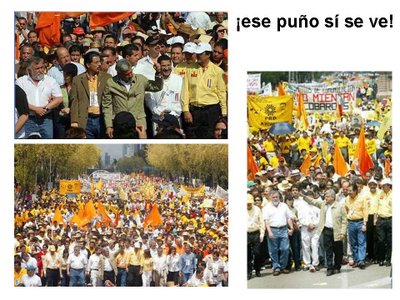

dimarts, de juliol 18, 2006
If Israel has the right to use force in self defence, so do its neighbours
Much has been made in recent days - at the G8 summit and elsewhere - of Israel's right to retaliate against the capture of its soldiers, or attacks on its troops on its own sovereign territory. Some, such as those in the US administration, seem to believe that Israel has an unqualified licence to hit back at its enemies no matter what the cost. And even those willing to recognise that there may be a problem tend to couch it in terms of Israel's "disproportionate use of force" rather than its basic right to take military action.
But what is at stake here is not proportionality or the issue of self-defence, but symmetry and equivalence. Israel is staking a claim to the exclusive use of force as an instrument of policy and punishment, and is seeking to deny any opposing state or non-state actor a similar right. It is also largely succeeding in portraying its own "right to self-defence" as beyond question, while denying anyone else the same. And the international community is effectively endorsing Israel's stance on both counts.
From an Arab point of view this cannot be right. There is no reason in the world why Israel should be able to enter Arab sovereign soil to occupy, destroy, kidnap and eliminate its perceived foes - repeatedly, with impunity and without restraint - while the Arab side cannot do the same. And if the Arab states are unable or unwilling to do so then the job should fall to those who can.
It is important to bear in mind that in both the case of the Hamas raid that led to the invasion of Gaza and the Hizbullah attack that led to the assault on Lebanon it was Israel's regular armed forces, not its civilians, that were targeted. It is hard to see how this can be filed under the rubric of "terrorism", rather than a straightforward tactical defeat for Israel's much-vaunted military machine; one that Israel seems loth to acknowledge.
Some of this has to do with the paradox of power: the stronger the Israeli army becomes, the more susceptible and vulnerable it becomes to even a minor setback. The loss of even one tank, the capture of one soldier or damage done to one warship has a negative-multiplier effect: Israel's "deterrent" power is dented out of all proportion to the act itself. Israel's retaliation is thus partly a matter of restoring its deterrence, partly sheer vengeance, and partly an attempt to compel its adversaries to do its bidding.
But there is also something else at work: Israel's fear of acknowledging any form of equivalence between the two sides. And it is precisely this that seems to provide the moral and psychological underpinning for Israel's ongoing assault in both Gaza and Lebanon - the sense that it may have met its match in audacity, tactical ingenuity and "clean" military action from an adversary who may even have learned a thing or two from Israel itself, and may be capable of learning even more in the future.
There has of course been nothing "clean" about Israeli military action throughout the many decades of conflict in Palestine and Lebanon. Israel's wanton disregard for civilian life during the past few days is neither new nor out of character. For those complaining about violations of Israeli sovereignty by Hizbullah or Hamas, it may be useful to recall the tens of thousands of Israeli violations of Lebanese sovereignty since the late 60s, the massive air raids of the mid-70s and early 80s, the 1978 and 1982 invasions and occupation of the capital Beirut, the hundreds of thousands of refugees, the 28-year-old buffer zone and proxy force set up in southern Lebanon, the assassinations, car bombs, and massacres, and finally the continuing violations of Lebanese soil, airspace and territorial waters and the detention of Lebanese prisoners even after Israel's withdrawal in 2000.
It is unnecessary here to recount the full range of Israel's violations of Palestinian "sovereignty", not least of which is its recent refusal to accept the sovereign electoral choice of the Palestinian people. Israel's extraterritorial, extrajudicial execution of Palestinian leaders and activists began in the early 70s and has not ceased since. But for those seeking further enlightenment about Hamas's recent action, the fact is that some 650,000 acts of imprisonment have taken place since the occupation began in 1967, and that 9,000 Palestinians are currently in Israel's jails, including some 50 old-timers incarcerated before and despite the 1993 Oslo accords, and many others whom Israel refuses to release on the grounds that they have "blood on their hands", as if only one side in this conflict was culpable, or the value of one kind of human blood was superior to another.
If there ever was a case for establishing some form of mutually acknowledged parity regarding the ground rules of the conflict, Hamas and Hizbullah have a good one to make. And if there ever was a case for demonstrating that what is good on one side of the border should also good on the other, Hamas and Hizbullah's logic has strong appeal to Arab and Muslim public opinion - regardless of what the supine Arab state system may say.
Indeed as George Bush and other western leaders splutter on about freedom, democracy, and Israel's right to defend itself, Tony Blair's repeated claim that events in the region should not be linked to terrible events elsewhere is looking increasingly fatuous.
The slowly expanding war in Afghanistan, the devastation of Iraq, the death and destruction in Gaza and the bombing of Beirut are all providing a slow but sure drip feed for those who believe that the west is incapable of taking a balanced moral stance, and is directly or indirectly complicit in a design meant to break Arab and Muslim will and subjugate it to untrammelled Israeli force.
Contrary to what Blair seems to believe, the use of force is unlikely to breed western style-liberalism and moderation. What is at issue here is not democracy but the right to resist Israeli arrogance and be treated on a par with it in every respect, including the use of force. If Israel has the right to "defend itself" then so has everyone else.
Furthermore, there is nothing in the history of the region to suggest that Israel's destruction of mass popular movements such as Hamas or Hizbullah (even if this were possible) would drive their successors closer to western-style democracy, and every reason to believe the opposite. Israel's invasion of Lebanon in 1982 did away with the PLO and produced Hizbullah instead, the incarceration and elimination of Arafat only served to strengthen Hamas, and the wars in Afghanistan, the Gulf and Iraq gave birth to Bin Ladenist terrorism and extended its reach and appeal. And we should not be surprised if the summer of 2006 produces more of the same.
However Israel's latest adventure ends, it will not produce greater sympathy and understanding between west and east, or a downturn in extremism. Indeed the most likely outcome is that a new wave of virulent and possibly unconventional anti-western terrorism may well crash against this and other shores. We will all - Israelis, Arabs and westerners - suffer as a result.
· Ahmad Samih Khalidi is a senior associate member of St Antony's College, Oxford, a former Palestinian negotiator and the co-author, with Hussein Agha, of A Framework for a Palestinian National Security Doctrine (Chatham House, 2006)
dilluns, de juliol 17, 2006
divendres, de juliol 14, 2006
Violence and more violence and more violence
- INTERNATIONAL STATE OF SHAME: ISRAEL
You are a shame, State of Israel
What do you think you will gain by bombing another sovereign state?
Do you think that by shock and awe and humiliation your life will be better?
Has it been demonstrated that terrorists recede by punishing a whole country? Not
Shame on your violent ways, shame on the way you terrorise civilians
One day, Israel, the tide will not flow in your favour, and you will collect what you have seeded.
dijous, de juliol 13, 2006
Introducción a la historiografía de la cultura visual gótica en Cataluña
No fue hasta el siglo XVIII, cuando las ideas románticas cambiaron el paradigma hasta entonces negativo de lo “gótico”. La Edad Media fue vista con ilusión: en dicho periodo se documentaron las comunidades que siglos después conformaron los Estados nacionales, las lenguas modernas y sus literaturas también surgieron en aquel entonces y los valores tanto gallardos como espirituales de los medievales capturaban la imaginación de las elites intelectuales. Autores de gran influencia como Goethe declararon su admiración hacia las grandes catedrales y así, en el siglo XIX, se valoró tanto artística como filosóficamente lo gótico. El término, aunque equívoco, enraizó, y de referirse a oscuridades y monstruosidades, devino en sinónimo de grandeza y maravilla. La Europa del XIX, siguiendo los postulados de Violet-le-Duc, padre y maestro de la recuperación de los edificios antiguos, se lanzó a la restauración, podría decirse, reinvención del gótico, estilo que llegó a identificarse como símbolo nacional (Inglaterra) o de la superioridad artística de un pueblo (Francia).
La historiografía del siglo XX emprendió estudios más científicos sobre el fenómeno, además se presentaron nuevas periodizaciones y se observaron inconsistencias de la teoría lineal del arte, lo cual llevó en los coloquios, encuentros y discusiones varias de los especialistas a proponer que no existe tal cosa llamada “gótico”. Desestabilizaciones tales como el “estilo 1200”, “arte de Císter” pusieron en duda la teoría que gotizaba el arte en completo de los siglos XI al XV. Panofsky también convencía con su teoría de que antes del Renacimiento del siglo XIV, se habían sucedido otros anteriores de menor intensidad. Cualesquiera que fuesen las propuestas, el gótico se convirtió, más que un estilo claramente diferenciable, en un repertorio de interpretación periódica que evocaba en principio la presencia de tres elementos: el arco ojival, el triforio y el alargamiento de las formas. Para mejorar el entendimiento, o para paliar las confusiones, de acuerdo al gusto de cada quien, se llegó a desarrollar una miríada de términos para parcelar al máximo las múltiples manifestaciones artísticas de hasta cuatro siglos: el francogótico, gótico lineal, italogótico, gótico internacional, gótico flamígero, gótico hispanoflamenco, románico-gótico, protorrenacimiento, gótico radiante, estilo perpendicular, etc.
La historiografía ideológica del arte nos demuestra que muchas ideas tienen más que ver con el programa político del momento que con el valor de las piezas en sí mismas.
ESTADO DE LA PINTURA CATALANA
En el siglo XII (1130) en la comarca conocida como Île-de-France aparece, tras una evolución de varios siglos y que atravesó el periodo llamado románico, el arco ojival. El arte gótico pues se definirá a partir de la arquitectura. En los subsecuentes cien años las formas surgidas en Francia se irán difundiendo por Europa. Así, en el siglo XII las artes se irán impregnando de lo que se dispersaba desde el país galo. En la pintura, empero, hubo que mezclarse y después imponerse al canon impuesto por lo bizantino.
En el caso de la Península Ibérica, fue hacia finales del siglo XIII que desde Francia se difunden las formas novedosas. O sea, pasó un siglo y medio para que en los reinos hispánicos se conociera el gótico. En el caso específico de los reinos de la Corona de Aragón, en Cataluña habrá que esperar al siglo XIV para que e interprete lo gótico, el cual llegó a través de artífices ingleses y franceses. Este gótico se le llama en la literatura “gótico lineal” y llegará a coexistir con el gótico italiano, el cual hace su irrupción en la península hacia 1330.
La compartimentación mayormente aceptada sobre el arte pictórico catalán fue acuñada por Post, que propuso cuatro etapas: francogótica, italianizante, internacional e hispanoflamenca. Gudiol Ricart siguió a grandes rasgos la mentada periodización y es la que ahora se difunde. Tal vez el único matiz que se ha de agregar es que el concepto de “francogótico” convive con el concepto de “gótico lineal.”
La relación entre lo “gótico italiano” y los reinos de la Corona de Aragón ha sido explicada, en primer lugar, por la conquista de esta última sobre Sicilia y Nápoles en los siglos XIII y XIV, empresa capitalista que habría fomentado el flujo de artistas hacia los reinos hispanos. Eminentes medievalistas como Joan Sureda, empero, rechazan la tan aceptada teoría de difusión unilateral del gótico, o sea, Italia –Aragón, por considerarla italocéntrica y documentalmente insostenible[1]. Dicha argumentación se sustenta en el análisis de la pieza llamada Martiro de San Lorenzo, de la iglesia de Santa Margarita de Melfi, realizada supuestamente por un maestro catalán, a quien también se atribuye una Crucifixión en la iglesia del Crucifijo de Palermo. Ambas piezas tendrían una estrecha relación con un retablo rosellonés, localizado en Serdinyà en 1342. Las fechas de las piezas italianas son del siglo XII, mientras que las catalanas son del XIV, por lo que el desfazamiento cronológico es total, esto había llevado a los autores italianos a redactar y repetir asiduamente que las obras en disputa habrían sido realizadas por maestros españoles emergentes y no por italianos, puesto que la historia del arte lineal no daba cabida a las trasgresiones formales en las piezas anteriormente mencionadas. En sus reflexiones, Sureda atribuía las tablas a artistas del Lacio y la Campania, por lo que el discurso historiográfico lineal, puntual y ordenado del “protorrenacimiento” toscano se venía abajo y la literatura del gótico catalán abriría nuevas interrogantes. El mismo Sureda opina que ante el estudio de la pintura “gótica”, cualquier investigador se tiene que enfrentar a un hecho determinante: no hay un corpus lo suficientemente representativo de lo ocurrido en el arte de aquel momento, en virtud de la falta de obra o de documentación. Los pilares en que se sustenta la historiografía artística medieval catalana son frágiles, la documentación del siglo XIV es más bien escasa y las piezas sobrevivientes están fragmentadas, dispersas y modificadas.
No obstante, es posible establecer criterios para tratar sobre los artistas, etc etc. El pintor más importante de Cataluña en el siglo XIV habría sido Ramon Destorrents.
Del siglo XV son harto importantes Jaume Huguet, Bernat Martorell, Lluís Dalmau. Documentados en Cerdeña se tiene a Bartomeu Lunell y Pere Blanch. Según Sureda, Huguet conocía bien el arte septentrional italiano, en específico, el de Piamonte, fronterero de italiano y lo flamenco-germano. El historiador propone que Huguet habría visto y se dejó influir por el arte piamontés, aunque no hay documentación que lo pueda corroborar y que en algún momento viajó por Cerdeña dejando su impronta, cosa que tampoco cuenta con documentación.

Lluís Dalmau, La Mare de Déu dels Consellers, 1443-1445. 311 x 311 cm, óleo y temple sobre madera de roble. Museo Nacional de Arte de Cataluña, Barcelona.
dimecres, de juliol 12, 2006
Chalga!!! Bulgaria's dirtiest guilty pleasure
Europe
Bulgaria's Chalga Music
By Matt Pointon
2 Jun, 2004, 17:16
“Tonight you will experience Chalga,” said Vladimir Kisiev, as we walked sedately towards the centre of Smolyan.
“Chalga?” queried the ignorant Englishman.
“Oh yes, Chalga,” said Ivelina Metchkarova. “Something very special.”
“What is this Chalga?” enquired the still-mystified Briton.
“Music,” replied Georgi Shopov, with not a small degree of enthusiasm.
Miss Metchkarova and Mr. Kisiev looked at one another. “Perhaps…” they added.
“It’s terrible isn’t it?” asked Ivelina, several double vodkas later. The song playing at that particular moment was a fast-moving gypsy melody with what sounded like some Greek influences. The lyrics were all in Bulgarian barring the chorus which was English and consisted of ‘Sexy! Sexy! Sexy!’ It was undoubtedly one of the cheesiest tracks that I’d ever heard in my life.
"Actually, I rather like it,” was my reply. Ivelina sighed in exasperation. So did Vladimir. Georgi Shopov however, beamed.
And so went my introduction to Chalga.
Of course, Chalga was something that even if I had never visited the palatial confines of Smolyan’s Top Stars, I was always going to encounter. No visitor to Bulgaria can escape it. Wherever one goes, it’s there, blaring from the taxi radio, deafening customers in the coffee shop, lulling early morning bus commuters into a troubled sleep, blasting out of classroom windows at break times and of course filling the disco dancefloors. No one who has been anywhere near Bulgaria is unfamiliar with this phenomenon. Whether they like it or not is another matter entirely. But the question that should first be asked of course, is what is Chalga?
The word ‘Chalga’ comes from the Turkish word ‘Çalg4’(pronounced ‘Chalguh’), which means ‘playing’ or ‘music’ and comes itself from Arabic. As the word suggests, the tradition came from the East and is not of Slavic origin. Indeed, the movement is derived from the art of the chalgazhia, a type of musician, normally a Tsigani, who could play virtually any type of music, but added his own distinctive beat or rhythm to the song. Often a chalgazhia would not be able to read music, but instead played from memory on his caval, (similar to an oboe). Playing in groups at festivals or weddings, these chalgazhia were the start of the Chalga story.
Throughout the communist years however, this genre of music was not looked upon favourably. The reasons behind this were manifold. Such simple peasant music had no real place in a go-ahead, forward-looking, modern socialist state, and when Zhivkov decided in the 1980s to steer a more nationalistic tack, such Eastern-originated traditions were of course looked down on, as inferior to those with more purely Slavic roots. What’s more Chalga also came with a provocative hip-shaking dance and at times lewd lyrics, and thus its morality as well as its origins was dubious. One also suspects that as an art form predominantly practiced and developed by the Tsigani, then a little racial discrimination also perhaps played its part.
But whilst Chalga was looked down on and discouraged in Bulgaria, in neighbouring Yugoslavia, which operated a much more flexible form of socialism, the genre flourished, and so whilst this ‘pop-folk’ was not played on Bulgarian radio stations, millions still managed to listen to it on stations broadcast from Serbia. It was not only the Yugoslavians either. In Greece, Syrtaki, a fusion of modern pop and Greek traditional dances and melodies, (who is not familiar with the strains of ‘Zorba the Greek’?), was becoming massively popular. In Turkey too, a similar situation was emerging.
And then came 1989. The regime fell, restrictions were lifted and a culture of corruption, fast money, gangsters and new freedoms took hold. A culture that provided the perfect breeding ground for Chalga. Chalga tunes, now played on all stations and available to all on cheap pirated tapes and CDs swept the nation. A new generation of scantily-clad and sexy superstars took centre-stage, performing songs that could have landed them in gaol but a year before. Lyrics concerning gun-running, gangsterism and of course, sex were the order of the day, danced to across the nation in new folkteki, (folk discos). The Chalga Era had arrived.
Most followers consider the movement to have reached its peak around 1998-9. By then countless others had followed the ‘Mother of Chalga’, Ruse-born Gloria, onto the scene, with pop-folk legends Tsvetilina, Kamelia, (and now the men) Valdez and Kondyo all becoming household names, with several recording studios, headed by the redoubtable Payner pumping out a steady stream of tracks every week. The government, under the influence of the European Big Brother, had launched definite campaigns cracking down on CD piracy and tightening up its copyright laws of which Chalga had always been a notorious offender. What’s more, as with everything, tastes change. New freedoms became older and less interesting and free sex less of an event. Western Pop, as well as the works of other Bulgarian musicians, both traditional and those exploring new avenues, (most notably its rap scene, headed by the Dope Reach Squad – Dobrich is their home town and they like dope, gettit?), and the ever-popular bald, middle-of-the-road TV favourite Slavi Trifonov, pushing in on Chalga’s market share. By the advent of the new millennium, the Chalga star was beginning to wane.
Nonetheless, even today, Chalga lives on, probably as Bulgaria’s most listened to form of music, and the mainstay of many a party and disco. And the signs are that that is not likely to change for a long time to come.
But that’s just the outline to it al. I wish to tell you about my personal Journey with Chalga. After that initial encounter in Top Stars, I became an addict, acquiring new CDs and tapes with every visit to Bulgaria, and pestering the Bulgarians abroad to keep me up-to-date with events in the Chalga Scene.
That I, foreign and educated, enjoyed Chalga, became a source of amusement and not a small degree of puzzlement to my Bulgarian friends. Their attitudes at first perplexed me also. “But how can you like Chalga?” asked Miss Metchkarova. Virtually any Bulgarian educated past eighteen echoed her comments. Only the village yokels seemed to share my enthusiasm. Well, to answer their questions, I liked Chalga because it is happy, lively and brilliant to dance to. What’s more, it does not take itself too seriously, or indeed, is it remotely serious at all. Not that I mind serious and thought-provoking tunes from time to time. Quite the contrary in fact, as my CD collection will attest, but some people do take their music far too seriously. And there are times when a little light-hearted fun must take precedence. After all, walk into a wedding disco and one does not want to hear Leonard Cohen or Radiohead.
However, it was not Chalga’s light-heartedness that captured me back on that steamy eve in Top Stars, but something else entirely. And that something was its Bulgarianess. For once here was a country not shunning its own distinct musical traditions for a bland imitation of Western Pop, (or Rock, Reggae, R ‘n’ B, Rap…). For once here was something different, unique and entirely homegrown. That more than anything else earned my admiration.
Now of course, even before I wrote that last paragraph down, I knew well the response that it would elicit. Chalga – Bulgarian! A development of our own distinctive musical traditions?! Why no, Mr. Pointon, you are mistaken! Very much so! Yes, we have our own folk music, and very good it is too, (Did you know that we had a folk song sent into space? ). But this folk music is not Chalga! Chalga is not Bulgarian! It is Eastern, Serbian, it is Oriental and (worst of all, horror of horrors), it is Gypsy!
Well yes my learned friends, (and the ones who come out with such comments are always learned), you are entirely correct. Or at least you are entirely correct if you classify Bulgarian culture as being entirely Slavic. Chalga is no natural progression of ‘Iovano, Iovanche’ or even ‘Kalinka’. It has Slavic elements perhaps, but purely Slavic it is definitely not. But there again, has Bulgarian ever been purely Slavic? Look at Bulgaria solely as a land of the Slavs and then yes, you are right, Chalga is alien. However, if you view her instead as a land where Gypsy, Slav and Turk have intermingled for centuries, and as a country that has repeatedly borrowed the folk melodies and dances of its Balkan neighbours, (as well as exported them, it must also be noted), since time began, and then a different picture is revealed. As a movement that involves members of all of Bulgaria’s races, (over half of Chalga stars are Slavic), and works in conjunction with similar traditions in all of the countries that border her, (though most notably Greece and Serbia), then I’m sorry, but in my mind, Chalga is very much Bulgarian, if not the essence of Bulgarianess.
‘But Mr. Pointon, no offence, but you’re just an ignorant foreigner. If you just understood the lyrics of the songs then you’d realise how bad Chalga is. They’re so dumb!’ Well, yes, at times they are. Some are in fact monumentally dumb as well as being monumentally cheesy. They are stupid and they are often lewd. Just read the English transcript at the end of this essay of ‘Tez cherveni domati’ (‘Those Red Tomatoes’), and you’ll see that they have a point. However, most of the songs are not that bad. 2002’s big hits were ‘Obicham te’ (‘I love you’), and ‘Pogledni me vuf ochite’ (‘Gaze into my eyes’), neither earth-shatteringly stupid, nor particularly different from most of the pop songs out there. And besides, since when have folk songs been deep and meaningful. Examining the British and Irish tradition, I find more lyrics dedicated to sex, romance and drinking than aught else. Ireland’s most famous track, ‘The Wild Rover’ concerns a man who returns home after years of playing the field, and ‘Maggie May’, Liverpool’s most famous folk song, concerns an encounter with a prostitute in that fair city and is lyrically much more comparable with Chalga than Wordsworth.
No, instead I find the lyrics of Chalga fascinating. They are tales of village life, (‘The village bath, ahhh! Great feeling!’), peasant love, (‘Come to the glade, just like this, the two of us. Come on, take off your clothes, let’s wade into the river.’), fast money, (‘Money, money, money, life is money, and cool women.’), and gangsters, (‘I arrive at Burgas Quay, here come my goods from Honduras. Bravo to the customs! Bravo to the police! The heat, the heat in Sofia!’). They tell of insecurity, fleeting happiness, formerly forbidden pleasures, smuggling and a criminal lifestyle. In other words, they could only come from Bulgaria, and they could only belong to this fascinating and fast-changing period in Bulgaria’s history. I suspect that in years to come, the country’s anthropologists will collect and treasure them.
And the videos too! Oh, one has to mention the videos! With Chalga the song is but half the story. The first Chalga video that I ever experienced was ‘Sto Metsedesa’ (‘A Hundred Mercedes’) by Tsvetilina. It was a masterpiece of low budget production. The beautiful Tsveta, (clad in the standard Chalga uniform of a very short skirt and very high heels), sings of how she wishes to own a hundred Mercedes Benzes against a computer-generated backdrop of unparalleled awfulness and cheapness; a sea of vivid colours that would not have looked out of place at a mid-nineties rave with Mercedes Benz symbols rolling past. Then our heroine gets to drive a Mercedes herself, whilst winking and showing a bit of leg to the camera. Except that they obviously couldn’t afford to hire one of those fine German automobiles even for a day, and so instead our smiling Chalga Diva goes to a Mercedes garage and climbs in and out of the cars in the showroom, (an activity which the cameraman utilises to maximum short skirt advantage), before finally selecting one and driving off… into the garage forecourt.
And A Hundred Mercedes is not a one off. Chalga videos are a dreamland of awful outfits, hairstyles and gesturing that only Eastern Europe could produce. Witness Valentin Valdez and his shoot-out in ‘Zhega Zhega’, (using toy guns), or the almost unbelievably eighties spectacle of ‘Tak, Tiki, Tak’, a song so Eurovision Song Contest-esque that no comedian could have parodied it better, and you’ll see what I mean. No please, heed my advice. I you visit Bulgaria only once in your life, and if on that trip you buy but one souvenir, then please, please, make it a Chalga video collection. You will not be disappointed!
No, the world of Chalga is one that should be explored. Take yourself off to a folkteka and learn to dance kyuchek, (Turkish belly-dancing). I visited one with Martin Marinov, a self-proclaimed King of Chalga, and undoubtedly a mine of information on the genre. The secret apparently, is to move every part of your body at the same time, including of course, the stomach, (thus being probably the only form of dance where it helps to have a beer gut), perhaps holding one’s arms out in front of oneself, clicking your fingers in time to the music.
I managed to sample folkteki in Vidin, Blagoevgrad and Stara Zagora, but my favourite was of course Bulgari, Varna’s premier folk-pop venue. Now the term folkteka is usually translated into English as ‘Chalga disco’, but that label is not entirely accurate for it is more a cross between a disco and a mekhana, (taverna). Our visits to Bulgari always started sat with friends around a large table consuming a glorious salad and downing copious quantities of rakiya or beer, whilst listening to a Chalga beat, (often provided by a live band), and watching sexy kyuchek dancers. As the night progresses one starts to tap one’s feet and click one’s fingers before getting up and dancing stood on the chairs and tables. Finally, we move to the dance floor for a kyuchek boogie which acts as a fitting conclusion to the night’s entertainments.
My most memorable evening in Bulgaria however, came in the Spring of 2003 when Plamen Atanasov, Kate Matthams and I visited to watch a performance by Azis, one of the biggest names in Chalga at the time. For a long time I had wanted to watch a real Chalga star live, but alas my regular drinking companions, Messers Marinov and Petkov, were firmly in the Anti-Chalga camp and I didn’t fancy going alone. However, when I heard that Azis was playing, I knew that this was not an opportunity to miss. Now Azis is far from being my favourite Chalga star, but I knew that his live show would be worth the effort. Azis is a Muslim Tsigani who shot to fame with as a bisexual, cross-dressing and outlandish stage personality. In a country that still has serious attitude problems when it comes to homosexuality, (before 1989 it was illegal), let alone towards the Tsigani, I considered his rise remarkable and a strong indicator of just how far Bulgaria has come since the regime change. Azis, with his died blonde hair and beard, cat’s eyes contact lenses, flamboyant costumes and enormous flabby figure was a showman of the first degree.
Not that we noticed much. By the time that he appeared we were all four sheets to the wind and in no state to appreciate even a bad performer, let alone the country’s finest. But we danced kyuchek, enjoyed our salad, enjoyed the alcohol even more, and at the end of the night got a photo with the man/woman him/herself in the background. And in my reckoning, life doesn’t get much better than that.
So that’s it. Listen not to the intelligent and educated Bulgarians who deride this peasant/Tsigani/stupid form of entertainment. Instead gather some friends, a fine carafe of rakiya, a mouth-watering salad and turn up the CD player. Get up on your table, click your fingers, move every part of your body, feel proud of that beer belly and then kiss the person next to you, be it a scantily-clad, bad perm-sporting young maiden, or an overweight, transvestite Gypsy. It’s a pleasure that’s divine and one that can only be had in Bulgaria.
Here is a list of some of my personal favourite Chalga tracks:-
Tsvetilina Sto Metsedesa
Zdravei da e!
Kamelia Nyama Shega
Pachki
Anelia Pogledni me vuf ochite
Ruslan Muinov Az ne sum
Azis Obicham te
Nyama
Valentin Valdez Zhega, Zhega
Zhigoloto v Berlin
Malkite Panteri Kalinka
Malina Obicham lyudo
Gloria Umori ce ot tebe
Ina Petiyat etazh
Naiden Milkov Ana
Ork. Varentsi Tez cherveni domati
Ork. Imperial Shest bez deset
Kondyo Money, Money
Doko, Doko
And here are the English translations of two notable Chalga classics:-
Tez Cherveni Domati
(‘These Red Tomatoes’)
Ork. Varentsi (2002)
Mother told Radka, my dear Radke
I will ask you something and don’t you lie to me, your mother.
Because:
These red tomatoes, who shook them, my girl?
These red tomatoes, who shook them, my girl?
Who did you down, my girl, who lured you, my girl?
Who seduced you, my girl, who poked you in?
Hush, I don’t want to hear of it, everything must stay secret.
Hush, I don’t want to hear of it, everything must stay secret.
This pepper without pips, you swallow it without losing any time.
This pepper without pips, you swallow it without losing any time.
Who did you down, my girl, who lured you, my girl?
Who seduced you, my girl, who poked you in?
Hush, I don’t want to hear of it, everything must stay secret.
Durt Kozel Mlada Lyushteshe
(‘An old Billy Goat was scratching a young willow hard’)
Ruslan Muinov (2002)
The best whistle is made out of young willow.
Bulgarian folk proverb.
Come to the glade,
Just like this, only the two of us.
Come on, take off your clothes,
Let’s wade into the river.
You feel ashamed of people,
But that’s the way it is in nature.
Just look there, at the flora,
How it becomes one with the fauna.
Refrain:
An old Billy Goat was scratching a young willow hard!
It was shaking it over and over again with its horns!
An old Billy Goat was scratching a young willow hard!
It was shaking it over and over again with its horns!
Lay your branches down on me
Till when are we going to chase each other?
It seems like I am an old Billy Goat for you,
You are a crying willow.
An almost done woman
An undeserved destiny.
You think I am old, but an old ploughman
Tills much better!
Many thanks to Ani Popova for her invaluable help with this piece and for her English translations of the songs.
dissabte, de juliol 08, 2006
Mexico and Florida have more in common than heat
There's something rotten in Mexico. And it smells like Florida. The ruling party, the Washington-friendly National Action Party (Pan), proclaimed yesterday their victory in the presidential race, albeit tortilla thin, was Mexico's first "clean" election. But that requires we close our eyes to some very dodgy doings in the vote count that are far too reminiscent of the games played in Florida in 2000 by the Bush family. And indeed, evidence suggests that Team Bush had a hand in what may be another presidential election heist.
Just before the 2000 balloting in Florida, I reported in the Guardian that its governor, Jeb Bush, had ordered the removal of tens of thousands of black citizens from the state's voter rolls. He called them "felons", but our investigation discovered their only crime was Voting While Black. And that little scrub of the voter rolls gave the White House to his brother George.
Jeb's winning scrub list was the creation of a private firm, ChoicePoint of Alpharetta, Georgia. Now, it seems, ChoicePoint is back in the voter list business - in Mexico - at the direction of the Bush government. Months ago, I got my hands on a copy of a memo from the US Federal Bureau of Investigation, marked "secret", regarding a contract for "intelligence collection of foreign counter-terrorism investigations".
Given that the memo was dated September 17 2001, a week after the attack on the World Trade Centre, hunting for terrorists seemed like a heck of a good idea. But oddly, while all 19 hijackers came from Saudi Arabia and the Persian Gulf, the contract was for obtaining the voter files of Venezuela, Brazil ... and Mexico.
What those Latin American countries have in common, besides a lack of terrorists, is either a left-leaning president or a left candidate for president ahead in the opinion polls, leaders of the floodtide of Bush-hostile Latin leaders. It seems that the Bush government feared the leftist surge was up against the US's southern border.
As we found in Florida in 2000, my investigations team on the ground in Mexico City this week found voters in poor neighbourhoods, the left's turf, complaining that their names were "disappeared" from the voter rolls. ChoicePoint can't know what use the Bush crew makes of its lists. But erased registrations require us to ask, before this vote is certified, was there a purge as there was in Florida?
Notably, ruling party operatives carried registration lists normally in the hands of elections officials only. (In Venezuela in 2004, during the special election to recall President Hugo Chavez, I saw his opponents consulting laptops with voter lists. Were these the purloined FBI files? The Chavez government suspects so but, victorious, won't press the case.)
There's more that the Mexico vote has in common with Florida besides the heat. The ruling party's hand-picked electoral commission counted a mere 402,000 votes more for their candidate, Felipe Calderón, over challenger Andrés Manuel López Obrador. That's noteworthy in light of the surprise showing of candidate Señor Blank-o (the 827,000 ballots supposedly left "blank").
We've seen Mr Blank-o do well before - in Florida in 2000 when Florida's secretary of state (who was also co-chair of the Bush campaign) announced that 179,000 ballots showed no vote for the president. The machines couldn't read these ballots with "hanging chads" and other technical problems. Humans can read these ballots with ease, but the hand-count was blocked by Bush's conflicted official.
And so it is in Mexico. The Calderón "victory" is based on a gross addition of tabulation sheets. His party, the Pan, and its election officials are refusing López Obrador's call for a hand recount of each ballot which would be sure to fill in those blanks.
Blank ballots are rarely random. In Florida in 2000, 88% of the supposedly blank ballots came from African-American voting districts - that is, they were cast by Democratic voters. In Mexico, the supposed empty or unreadable ballots come from the poorer districts where the challenger's Party of the Democratic Revolution (PDR) is strongest.
There's an echo of the US non-count in the south-of-the-border tally. It's called "negative drop-off". In a surprising number of districts in Mexico, the federal electoral commission logged lots of negative drop-off: more votes for lower offices than for president. Did López Obrador supporters, en masse, forget to punch in their choice?
There are signs of Washington's meddling in its neighbour's election. The International Republican Institute, an arm of Bush's party apparatus funded by the US government, admits to providing tactical training for Pan. Did Pan also make use of the purloined citizen files? (US contractor ChoicePoint, its Mexican agents facing arrest for taking the data, denied wrongdoing and vowed to destroy its copies of the lists. But what of Mr Bush's copy?)
Mexico's Bush-backed ruling party claims it has conducted Mexico's first truly honest election, though it refuses to re-count the ballots or explain the purge of voters. Has the Pan and its ally in Washington served democracy in this election, or merely Florida con salsa?
· Greg Palast is the author of Armed Madhouse: Who's Afraid of Osama Wolf? China Floats Bush Sinks, the Scheme to Steal '08 and other Dispatches from the Front Lines of the Class Wargregpalast.com




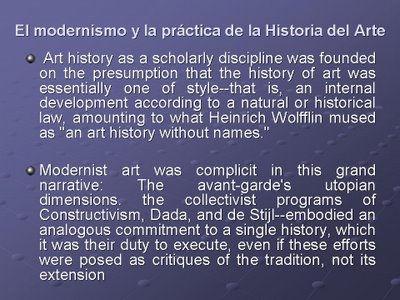
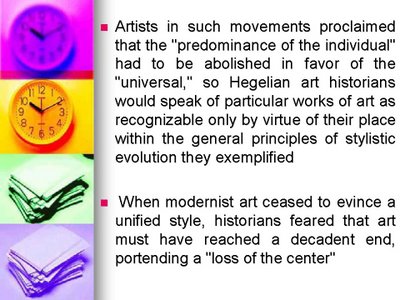





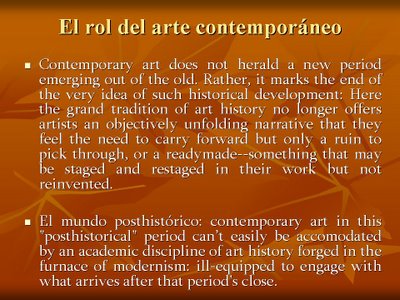


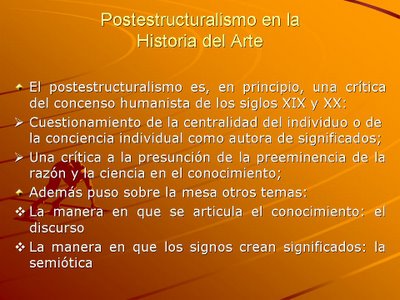
 °
° °
°











